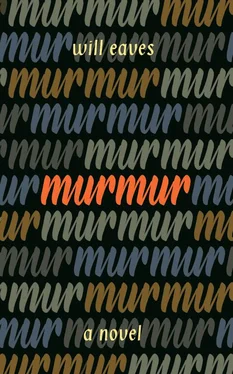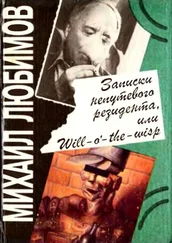She listens with the effort of a teacher wishing to reserve judgment. She breathes in very carefully, and says, “You’re being most mysterious, Alec. I’m not sure if I should be pleased you planned all this. How did you know I’d accept you? It is the feminine prerogative to be mercurial, you know.”
“Oh, mercury. I wouldn’t be so proud of that. Makes good mirrors, if you can live with the toxicity. But you can do so much better! I like to coat my glass with pure silver, the most reflective metal and—a symbol of equality. The isotopes, you know—equal in abundance.”
June asks me what I’ve done. I tell her that I’ve laid in store a pessimist’s ransom. Some currency, in case the worst happens, which it well might. It’s hard to think of these old hills and ancient paths falling—of coming round a turn in the herringbone wall to find sentries, a BMW R75, its loud report. And hard to brook our country’s death, the death of a whole world. But even Trentham over in Hut 1 has started to hint at the need for “realistic” plans, contingencies. We can’t believe in our complete failure, although the evidence is everywhere about. We’re shut out from our own catastrophe.
I take June, softly protesting, past our recumbent Hercules into the ivied grove. Some paces in, the stream cuts through the fern. The leaves of ivy make a brittle carapace upon the earth.
“Good God. Alec!”
And here they are: two rag-wrapped thousand-ounce ingots beneath an overturned wheelbarrow. No: I don’t believe in God—but I believe in others’ superstition, and our animal regard for sacred spots.
“I’m going to bury them.”
A graveyard is the safest vault. June clears her throat and stifles her astonishment. Why here? She doesn’t put the question quite like that, but, being practical, asks how, after the war, if we’re still here, I’ll know which tussock, which bald patch or broken root, conceals our wealth?
I thought about this when I hauled the barrow up the hill some weeks ago.
The ingots represent the sum of my inheritance—father’s Indian pension, the fellowship from King’s—minus immediate costs for Christopher’s memorial. His parents—Quakerish, austere, in their way admirable—planted a tree. I wanted him to have something more permanent. His mother died when I became the don Chris should have been. I had usurped her son’s future. The silver bars are grave goods to console a kindred spirit lost to her and undeserved by me.
I’ve chosen turf on the near bank, between the water and a partly hollowed-out oak tree, one side of which is black, blasted, and bossed, the other densely green. If I look up, toward the church beyond the stream’s far shore, there is a new stone sprouting in the yard. It stands palely amid the aged monuments, a footnote to the tower’s blue-gold clock. That is the vital alignment. The stone reads: “To the memory of a Beloved Son, Christopher Molyneaux,” inscrutable from where I sit, grubbing the earth, but clear and plain in my mind’s eye. Into the earth I heave the bullion, which peeps out from its shrouding cloth. Catches the light. It is like burying a star.
“There. Rest in Peace. Tree, stone—the yellow one—and clock form a straight line. I know the distances.”
June squats between the raised roots of the oak and ties her hair.
“But still,” she says, “encipher them and be detailed. You’re four feet from the stream, at a right angle to the oak tree’s major surface limb. Write it all down.” She smiles. “Include the map coordinates.”
“It feels a bit like ‘gardening.’ Cheating, you know…”
Gardening’s not gardening. It’s just our name for laying mines where we know they’ll be found. The German signals traffic that results has known content—the mines’ coordinates—that makes the isolation of a keyword easier.
“Who do you think I am, Alec? Naval Command?”
I take some paper and a pen from my pocket, scribble a few plain-text details, note down a first enciphering.
“I tell you what.” A thought occurs to me. “I’ll give you the encoded directions without the key, which I will keep. That way if something happens—we’re invaded or I’m drowned at sea—both halves stay separate. The enemy can’t break our code—”
“You hope.”
“—I hope—and you might not need it, with your fine memory.”
“I have a feeble memory. Muddy stockings. No hat.”
“It’s overtaxed today, perhaps. But it can learn.”
“I’d rather have a hat.”
As we turn back from the stream’s edge, a low-hanging and berry-laden branch plucks at my sleeve. I know it for a branch of elder by its toadskin bark, though for an instant in the churchyard tenebrae it puts on flesh and pale sinew, and by the mushroom light I’m gripped, breathing the summer allergens: a Brownian suspense of midge, spore, parasite, and loam. A hag’s cackle mimics the stream. June saunters on, trailing her hand in creepers and the undergrowth. With a sharp twist I partly free myself. June doesn’t hear when I call her. She slows, caught between seconds of a golden watch. The wood is large, larger, its silence long. Because I must, I face the other way, marking the stream. There, at the dead and living tree, is June’s image, a scattered reflection, its fine attentive features struck with a somnambulist’s weakness, mouth open in a silent O.
Her hands thrust at the sky in greedy victory. Soil riddles down her arms, her face, enters her mouth, mixes expressionlessly with her tears. Twigs pick my sides and I hear Mother Elder laugh as June’s gray ghost sinks to her knees beside the ingots’ grave. My slip of ciphered paper rattles in the wind. On it there now appear seven words, one sentence and a claim: I saw a lady sitting all alone .
“Come on,” the real June calls, from Chapel Hill. “Time to go home.”
High Street is deserted. We cycle north. I find it harder than I should to counter the cool breeze. We move in a thick green-lit sap. My body sways, the air resists. Of course, I have a damaged wheel, which doesn’t help: one rear spoke bends inward and clips the bike chain every sixteenth revolution with a click. At the fourth click, the chain comes off—unless I intervene. It makes for stop-start progress, getting off and getting on again, although the delays arguably help June, who rides slowly, to make up ground.
Except, she’s out in front of me today, drawn onward, reeled in by the same drowsy currents of air, the same forces of gravity that hamper me. I’m late. I’ve been so stupidly delayed. I’ve broken an unspecified curfew. The shops have all just shut. The town’s inhabitants hasten away down side alleys into stockrooms, shelters. They put their fingers to their lips. At the grocer’s, a pair of scales rebalances itself. Footfalls clap salesmen hurrying downstairs. The entry bell at National Provincial is a memory. Blinds blank the stenciled panes at Clem, Rollins & Joy, solicitors. The brass ring at the bottom of each blind wriggles upon its hook.
I sense enchantment in the lilac dusk. A pair of Gothic houses guards the turn from High Street to St. Nicholas’s Lane, and in the valley between gables floats the sun. Out of the bruised, polychromatic brick leaks hue, spirits with hollow-eyed faces that ask: Where have they gone? Where are the people from your past? This house, this open door, they’re yours: why hesitate?
Fear chafes the skin. June’s bike lies on its side against the door-up steps, as though this were her home, not mine. Her back wheel spins, ticks to a halt. She’s gone inside, the echo of her heels on the parquet. I step into the hallway with its antlers thrusting from the right-hand wall and cobalt-colored glass above the stairs, gelling the half-landing. The parlor door’s ajar and from within I hear voices, a solemn clock, polite sounds muffled by long, purple curtains and the listening woods of painted landscapes, heavy furniture.
Читать дальше












